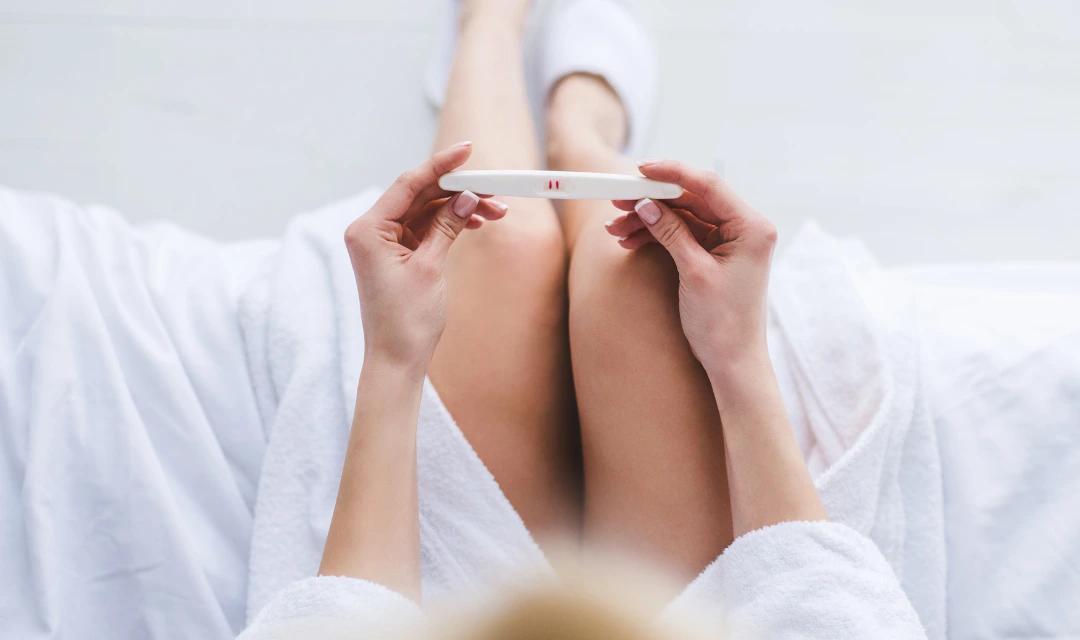First Moments After A Positive Test – What Now?


Table of contents
You’ve taken the test, waited nervously, and now you’re staring at a positive result. Whether you were hoping for it or not, seeing those two lines or plus signs can be an emotional rush—excitement, disbelief, joy, or even fear.
This is most likely to happen at around week 4 of pregnancy. It means you’re still in the very early days. The embryo is only about the size of a poppy seed.
What’s Happening Inside Your Body at Week 4
At this point, implantation has already occurred. That’s when the fertilized egg attaches itself to the lining of your uterus. This triggered your body to start producing a hormone called hCG (human chorionic gonadotropin), which is what the pregnancy test detected.
You might not feel very different yet. Some women have early signs like tender breasts, fatigue, or mild cramping. Others feel completely normal. That’s okay. Every pregnancy begins in its own way.
Right now, the embryo is starting to grow rapidly. The foundations of the placenta are forming. The next few weeks will be full of invisible yet critical changes.
What to Do After a Positive Test
You don’t need to rush to the clinic on the same day. Most providers suggest calling to schedule your first prenatal appointment for around week 6 to 8. This gives time for the pregnancy to develop enough to be seen clearly on an ultrasound.
When you call, mention the date of your last period. That helps estimate how far along you are. The clinic might also give you advice for early pregnancy care—like what vitamins to take or what foods to avoid.
If you’re taking a multivitamin, check that it includes at least 400 micrograms of folic acid. This vitamin is important for a baby’s early brain and spine development. If not, start a prenatal vitamin right away.
Once you have learned about pregnancy, there are a few things to be mindful of. Avoid alcohol and smoking. Cut back on caffeine if you haven’t already. And let your provider know about any medications you’re taking, even over-the-counter ones.
Handling Emotions and Questions in the First Days
The first few days after a positive test can feel like a blur. You might be thrilled one moment and overwhelmed the next. That’s completely normal. Hormones are rising, and your brain is processing a major life shift.
If this pregnancy wasn’t planned, you may feel uncertain. Take time to talk it over with someone you trust. Whatever you’re feeling—there’s no “wrong” way to respond.
You don’t need to tell anyone right away unless you want to. Some women wait until after the first scan. Others tell a partner or close friend immediately. Do what feels right for you.
Looking Ahead to the Coming Weeks
Your first prenatal visit won’t happen immediately. Most providers schedule it a few weeks later, usually around week 6 to 8, when more details can be seen on a scan. That visit often begins with a conversation about your medical history, previous pregnancies, and how you feel now. Blood work may be done, and an early ultrasound is sometimes offered. All those tests will help us understand how things are going.
In the meantime, your focus is simple: support your body as it adjusts. Make changes to your appetite, even if it shifts day to day. Drink water regularly, even when nausea begins to creep in. Sleep may feel different, so take rest when you can. Remember that your body is already working harder than usual.
Mild cramping without bleeding can be a sign of your uterus stretching, which is common. But if you experience sharp pain on one side, feel faint, or notice bleeding that is more than spotting, do not wait. Check-in with your doctor right away.
You may not see or feel much right now, but a new chapter has quietly begun. There is no need to rush into excitement or worry. Let it unfold at your pace, one small step at a time.